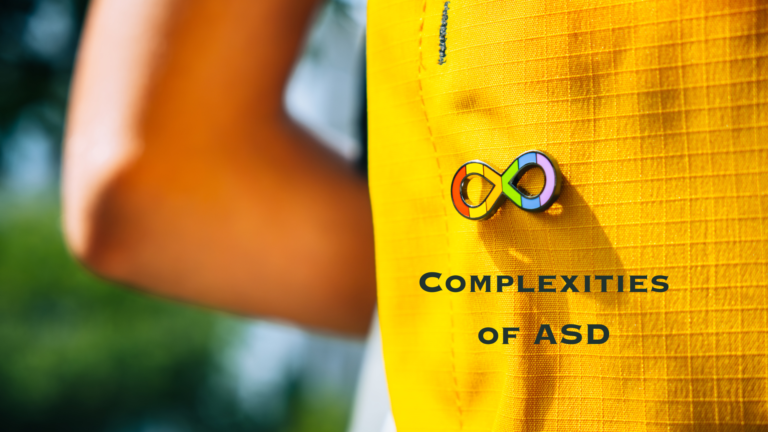Okay, so maybe this is a slight exaggeration, but what I’m going to share with you, the skill of validation, is a very powerful tool to improve the parent-child relationship and even de-escalate intense emotional situations.
Validation, what is it?
We often hear the word validation and think of agreement, or affirmation, and rightly so as Webster defines it as “the act of confirming something as true or correct.” But in psychology, validation has a very different angle. Validation communicates to another person that their feelings, thoughts and actions make sense and are understandable to you in this particular situation. It has been called “empathy in action.” The ability to first calm and regulate your own internal state and then, be curious, putting yourself in the other persons shoes for a moment without judgement. With our teens, if we do not first manage our own anxiety, activation or judgment, we are ineffective to impact them in a positive way. In Dialectic Behavioral Therapy we say “A dysregulated nervous system cannot regulate another dysregulated nervous system.” So take a few deep cleansing breaths, and then proceed.
Why validate
Validation improves relationships. It de-escalates conflict and intense emotions. It shows we are listening, that we can see where they are coming from, that we are choosing to be nonjudgmental, that we care about them and the relationship, and, at times, that we can even disagree without having a big conflict.
What Validation is not
From this framework, validation is NOT agreement. You may not agree with your teen’s statement that “everyone hates me.” You may know for a fact that their friends like them and are supportive. But, saying to the teen, “that’s not true…..” is not going to result in the child feeling that you have heard them, or care about their feelings, or want to listen to them. They will likely shut down and go to their room or become angry with you. But, if you were to say, “oh wow, sounds like you have had a really hard day, what happened?” Your child is much more likely to share more about the situation. Now if that type of reply from a parent is a new and a very different response it may take a while for the youth to believe it is safe for them to share their emotions and experiences with you. Don’t lose heart, this is your magic key. They will eventually believe that you will not judge or give advice or correct their perspective in that moment. (By the way, when we offer advice or correct their thinking, they are unable to hear you anyway when they are upset. When a person is upset, their amygdala, the fight or flight part of the brain, is activated, causing the logical prefrontal cortex to shut off.) Validation of their feelings can calm the amygdala and allow for logic and rational thoughts to come back on board, and then and only then, will the child be able to hear a different more rational perspective. And all this time we thought it was rebellion!! Nope, just the brain trying to survive what it interprets as a threat. Now, you might be thinking, but isn’t it my job as the parent to teach, train, correct, and help mold them into adaptive, functional adults? Yes! Of course! Using Validation, your magic key, opens the inner doors of your child’s heart and mind to allow your guidance to seep in and help them learn the skills necessary for them to better navigate future hurts and fears.
How to validate?
There are 6 strategies to begin to validate your teen (or anyone for that matter, as validation assists in any relationship.) First, be present and make eye contact. I know this may sound pretty basic, but if you watch yourself with your child I bet you will be surprised how often you are glancing at your phone, trying to continue working while you listen. Instead, put all technology and distractions aside and communicate to your teen that they have your whole undivided attention, that you value their emotions and experiences above your “to do’s”. Please hear me that this is not judgement, we all do it as parents and it takes intentionality and practice to offer our full present attention to those we are so comfortable with. Second, we validate by reflecting what they are saying back to them. “I hear you, that this feels overwhelming.” Or “I see that you are disappointed.” We want to avoid saying “I know how you feel,” as that can feel invalidating to a youth that believes their parents are “super old.” Thirdly, be mindful of your verbal and nonverbal reactions. Watching for our tone or body language that communicates impatience, irritability or disagreement. Fourthly, as you listen, it can be helpful to take a guess at the emotions the child is feeling. They may not always have the emotion words for what they are experiencing. You might say, “It seems you might be feeling embarrassed by what your friend said.” If you are wrong, trust me, they will tell you, but they will see also your hard work to help them and understand them. It may be the stepping stone they need to identify their emotions. Fifthly, show tolerance. Look for how the feelings, thoughts and actions make sense, given your child’s history or current situation. You truly know them better than anyone else, so dig deep to put their feelings into context for them. For example, “I don’t blame you for feeling hopeless about it getting better, given your past experience at your last school when you were bullied.” Lastly, respond in a way that communicates you are taking your child seriously. Sometimes a certain behavior may communicate validation more than words. If they are crying it may be a hug, or after listening it may be to ask ”how can I be most helpful” or “Do you want help solving your problem?”
If you choose to give validation a try the next time your teen comes home in a funk or is upset, remember, it must start with you being calm and open. It can take a little time for trust to develop, but if you hang in there and practice the validation skills, you will watch your teen begin to open up, share more and move toward you relationally. You got this! Stay tuned for more blog posts that may be of help in navigating your child’s journey through adolescence.





